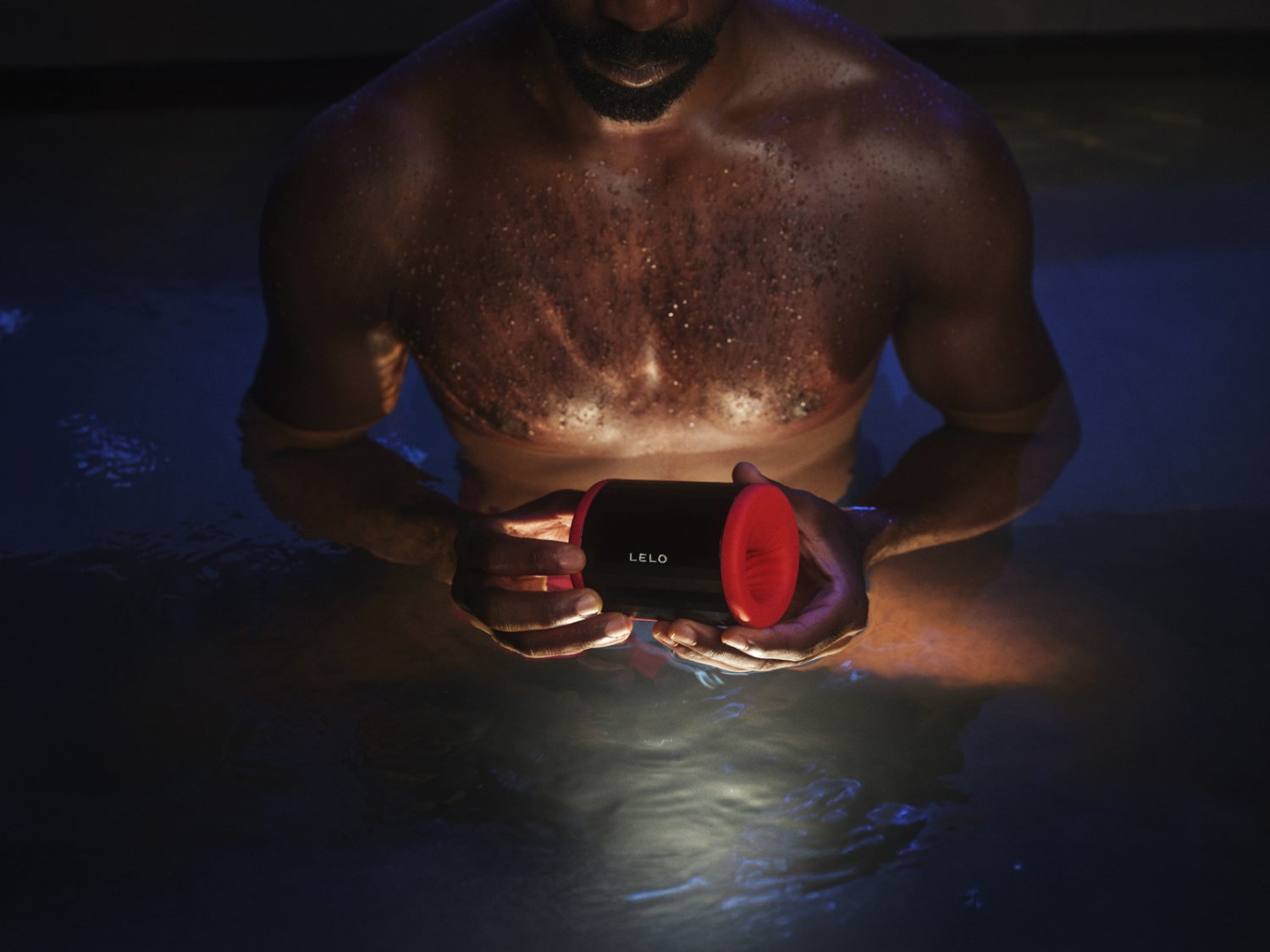When you have sex with anyone, my hope for you is that it’s pleasurable and satisfying. But let’s talk about safe sex: broadly speaking, I’m referring to STI prevention and unwanted pregnancy prevention. When you’re informed and have communicated safe sex practices with your partners, you can relax that much more into the sex itself.
Speaking of communication: did you know that most people report having their best sex when their partners make them feel comfortable? In this way, safe sex communication can tell you a lot about a person. When they’ve shown that they’re mature enough to have these conversations, that they respect your body and prioritize your pleasure, those are big-time green flags. So let’s talk about the basics of safe sex, and smart practices for you to adopt.
What are the top STI’s?
The first thing you should know is that STI’s (also called STD’s) are preventable. Here are the main ones to be aware of, and how they affect people:
- HPV: The most common STI in the US. In fact, HPV (human papillomavirus) is so common, that according to the CDC, nearly all sexually active men and women get the virus at some point in their lives if they aren’t vaccinated.
- In most cases (9 out of 10), HPV goes away on its own within two years without health problems.
- But when HPV doesn’t go away, it can cause health problems like genital warts and cervical cancer.
- Symptoms aren’t terribly common, but left untreated you might notice genital warts or an abnormal pap smear.
- Rates are high among both penis owners than vulva owners.
- Herpes: A very common STI, so common most people don’t know they have it.
- While there’s no cure, there is medication to reduce your symptoms and minimize the chance you could spread it to someone else.
- It shows up as oral herpes (cold sores around the mouth), or genital herpes (one or more blisters around the genitals, or the anus).
- Rates are higher among vulva owners than penis owners.
- Syphilis: A relatively common STI. While it can cause health problems if left untreated, it’s easy to cure in its early stages.
- If you get syphilis while pregnant though, it can cause serious problems in a baby.
- It shows up as firm, painless sores around the genitals, anus or mouth, and progresses into a rash.
- If you don’t take care of it, it can stay in your system for years and eventually (fatally!) damage your internal organs.
- Rates are higher among penis owners than vulva owners.
- Gonorrhea: A very common STI. Interestingly enough, it often has no symptoms.
- You might feel a burning sensation while peeing, which is why lots of people mistake it for a UTI (urinary tract infection).
- While the right meds can cure this one, drug-resistant strains are increasing.
- Rates are higher among vulva owners than penis owners, and especially among young people aged 15-24 years.
- Chlamydia: A relatively common STI. Like gonorrhea, it often has no symptoms.
- The most common symptom is a burning sensation while peeing, or abnormal genital discharge.
- The right treatment can cure chlamydia, but left untreated in vulva owners, it can make it difficult to get pregnant.
- Rates are higher among vulva owners than penis owners.
- HIV/AIDS: Definitely the STI that’s gotten the most PR in the last several decades, you’ll be happy to know there are major advances in HIV/AIDS treatment.
- Breakthrough medicines have enabled people with HIV (human immunodeficiency viruses) to live long, healthy lives, and to even prevent HIV from progressing to AIDS, which is much more fatal.
- That said, there’s still no cure, and once acquired, HIV/AIDS can wreak havoc on your immune system. But in its early stages, HIV is fairly asymptomatic.
- Most people with HIV receive antiretroviral therapy to suppress the virus, both to prevent transmission and sustain a high quality of life.
- Today rates vary, but tend to be evenly spread among vulva owners and penis owners.
Note: STI’s do not equal a sexual death sentence! Listen to my episode “Hot Sex with STI’s w/ Dr. Ina Park” to hear about navigating partnered sex when you’ve got an STI.
Now that you’re well-informed on STI’s and how they show up in the body, let’s talk about how you can not get them.
How can I prevent an STI?
Several ways. They include:
- Condoms on penis owners: When used perfectly, condoms on penis owners are estimated to be 98 percent effective. SKYN has tons of options.
- Condoms on vulva owners: When used perfectly, condoms on vulva owners are estimated to be 95 percent effective. Check them out from FC2, currently the only FDA-approved female condom brand.
- Condoms + lube: Using lube is highly recommended as it prevents tears in the delicate skin of your genitals, and tears in the condom. This goes a long way in reducing STI risk, and as far as lubes go, I recommend Playground to everyone I know.
- Dental dams: To prevent STI spread from oral sex. Harmony is a popular option.
- Other forms of sex: As we expand our definition of “sex” to go beyond penis-in-vulva penetration, there’s plenty of sex you can have that doesn’t involve trading sexual fluids (which is how STI’s are contracted). Mutual masturbation, phone or video sex, sensual massage, finger stimulation: the list goes on! I’ve got plenty of ideas for “alternative sex acts” on this episode.
- Talking to your partners: Another easy way to prevent STI transmission? Talk to your partners, and ask if they’ve been tested. Or better yet? Get tested together!
How do I know if I’ve got an STI?
You can do regular self-checks for symptoms (namely, suspicious bumps around your genitals, anus or mouth). But the only surefire way to know is targeted STI testing. For that, you can opt for:
- In-office testing: Since so many STI’s don’t have symptoms, a full annual screening from your care provider is a great idea.
- At-home testing: At-home tests for STI’s are increasingly available, like these from Everlywell.
That’s the lowdown on STI’s, now let’s talk about the other big component of safe sex: pregnancy prevention, if you’re not looking to have a baby.
How does unplanned pregnancy happen?
Maybe it seems obvious: sperm fertilizes an egg, duh. But it’s worth going over the basics, because even if you think you’re being careful, unplanned pregnancies happen all the time. Here’s the deal:
- Eggs live in the ovaries, but only a few eggs mature each month.
- About halfway through a menstrual cycle, one mature egg leaves the ovary — called ovulation — and travels through the fallopian tube towards the uterus.
- The egg remains there for 12-24 hours, slowly moving through the fallopian tube.
- Sperm gets in the vagina, swims up the cervix, and with the help of the uterus moves towards the fallopian tubes.
- If a mature egg and a sperm are in the fallopian tubes together, they can join to initiate fertilization.
- Fertilization does not happen right away. Since sperm can remain in the uterus and fallopian tube for up to 6 days after sex, there’s up to 6 days between sex and fertilization.
- Most penis owners have the ability to conceive their entire life.
- Most vulva owners will stop being able to conceive as they approach menopause, typically late 40s to early 50s.
While no form of birth control is 100% effective, a lot of it is pretty close! So let’s take a look at options.
How can I prevent an unplanned pregnancy?
Today, there are many contraception methods: here’s a full list from Planned Parenthood. Below are some of the most common, including a few that aren’t common yet (like contraceptives for penis owners) but noteworthy in their own way.
Condoms (for penis owners + vulva owners)
How do they work? On a penis, a condom rolls on like a tight glove, with a thin, outer ring around the base of the shaft. In a vagina, the condom is inserted and kept in place by a thin, outer ring around the vaginal opening.
Pros: Extremely effective if used properly. Listen to my episode with Gabrielle Stanley Blair and Dr. Wednesday Martin to hear more about condoms, pleasure, and pregnancy prevention.
Cons: Can tear, enabling sperm to make contact with eggs.
Hormonal contraceptives for vulva owners
How do they work? Generally by stopping ovulation. No ovulation = no egg for a sperm to fertilize.
Pros: Extremely effective in preventing pregnancy, with rates between 93% – 99.9% prevention. Fewer or no periods for vulva owners. Sometimes reduced hormonal acne.
Cons: Possible mood changes. Possible drop in sex drive. Possible breast tenderness and bloating.
Popular Options:
- Birth control pills (taken daily, orally)
- Birth control implant (lasts up to 5 years once implanted vaginally)
- Hormonal IUD (lasts 3-12 years once implanted vaginally)
- Birth control shot (every three months, in upper arm or buttock)
- Vaginal ring (put in and take out once a month, vaginally)
- Birth control patch (replace weekly, applied to buttock, upper outer arm, lower abdomen or upper body)
Non-hormonal contraceptives for vulva owners
How do they work? A variety of ways, but typically involve killing sperm on contact, or changing the vaginal pH to immobilize sperm.
Pros: No changes to your hormonal system, often easy to use.
Cons: A non-hormonal IUD is over 99% effective in preventing pregnancy, but insertion can be uncomfortable, and for some, menstrual bleeding can be temporarily heavier. Other options, like spermicide or prescription vaginal gels like Phexxi, are great options but not as effective in preventing pregnancy: spermicide alone is about 70% effective in preventing pregnancy, while Phexxi is about 86% effective in preventing pregnancy. Barrier methods like diaphragms, cervical caps and sponges are also available, but with varying degrees of effectiveness.
Popular Options:
- Spermicide (self-inserted into vagina before sex)
- Copper IUD (inserted by your care provider, can last up to 12 years)
- Vaginal gels like Phexxi (self-inserted into vagina before sex)
Less Popular, But Still Viable:
- Diaphragm (self-inserted internally before sex)
- Cervical caps (self-inserted internally before sex)
- Sponge (self inserted internally before sex)
Contraceptives for penis owners
How do they work? Tough to say, because science is still working on it. But the most promising option is a gel, applied once-daily to the shoulder.
Pros: PENIS OWNERS CAN TAKE BIRTH CONTROL!
Cons: Not available yet. Stay tuned.
Natural Methods
Finally, au naturel pregnancy prevention like “the pull-out method” which, as the name suggests, is entirely based on the user as far as execution and effectiveness. Because “user error” does occur, the pull-out method isn’t a silver bullet to preventing pregnancy.
There’s also the “rhythm method,” where vulva owners track their menstrual cycle to know when they’re most likely to conceive (around ovulation). Here’s a great resource to find cycle tracking apps that don’t share your data.
Safe sex practices are here to help everyone sink deeper into pleasure, and relieve stress over STI’s and pregnancy. Sign up for my weekly newsletter today for more sex tips, new podcast eps + articles, and news delivered straight to your inbox.











